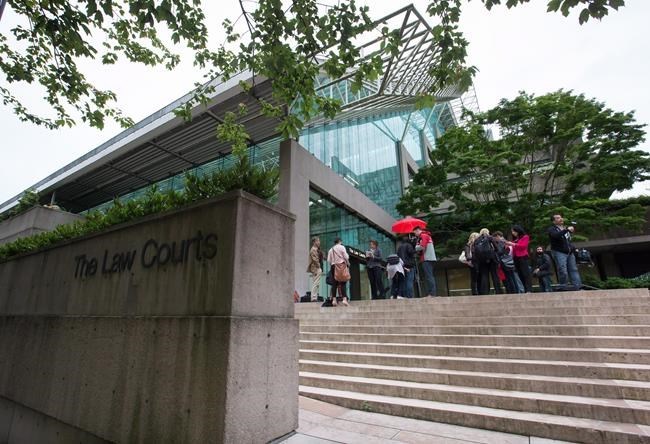VANCOUVER — A man accused of the first-degree murder of a Burnaby, B.C., teenager six years ago repeatedly denied killing the girl as his trial started Wednesday.
When asked for his plea in front of a B.C. Supreme Court jury, Ibrahim Ali said three times through a Kurdish-speaking interpreter that he "did not" kill the 13-year-old girl.
The B.C. Crown Prosecution Service informed The Canadian Press on Wednesday a publication ban had been placed on the girl's name.
Justice Lance Bernard clarified with Ali that his statements were a not guilty plea.
"Yes," Ali replied through the interpreter.
In his opening address to jury members, Bernard explained their role in the trial process, including that they must reject any potential biases.
"You will recall at jury selection, each of you swore or affirmed that your ability to judge the evidence in this case without bias, prejudice or partiality would not be affected by the fact that the accused is a Muslim man and a Kurd from the Middle East," Bernard said.
Ali, a Syrian national, had been in Canada about 17 months before he was arrested on the murder charge.
Bernard cautioned that if the jury recognizes a prejudice or negative stereotype, it is their "sworn duty" to set it aside and decide the case based on evidence presented at trial.
"You must make a conscious effort to resist and to help other jurors resist jumping to conclusions based, for example, on race, ethnicity, religion or gender," Bernard said.
The trial broke around noon Wednesday after the judge delivered his opening statements so counsel could make arguments to the judge without the jury present.
Bernard told the jury in his opening address that such arguments were common.
"From time to time during the trial, it may be necessary for you to retire to the jury room so the counsel may argue points of law or points of evidence," he said. "Please do not speculate on specific reasons (you are) excluded. This simply happens to ensure that nothing improper is placed before you."
The body of the girl was found in Burnaby's Central Park on July 18, 2017, just hours after her mother had reported her missing.
She left her home around 6 p.m. the evening before she died and was last seen on security video going into a Tim Hortons restaurant a few minutes later.
Her mother called police at 11:30 that night and RCMP say the girl's body was found in a wooded area of the park early the next morning.
Police announced charges against Ali 14 months later, saying new evidence had come to their attention just weeks before his arrest.
RCMP had said then that they believed the teen's murder was random and that Ali and the girl didn't know each other.
The trial is expected to resume Thursday for opening statements.
This report by The Canadian Press was first published April 5, 2023.
Brieanna Charlebois, The Canadian Press
Note to readers: This is a corrected story. A previous version used the victim's name, which the B.C. Prosecution Service says has been banned by the court.



